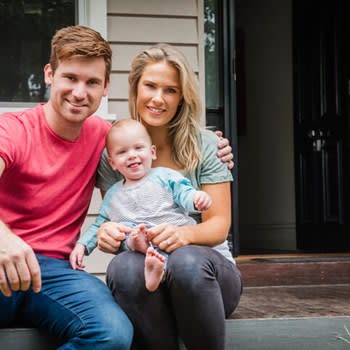Massachusetts Section 8: Get Help With Housing Costs
- Understand what Massachusetts Section 8 housing is and how to get approved for benefits, including the income limits and other eligibility requirements.
Are you facing financial difficulties and struggling to pay rent? Is your household's income far below the median for the part of Massachusetts you live in? You might be eligible to receive housing vouchers. These vouchers can be used to rent a house or apartment from any landlord whose property has been approved by the program. The group that administers these vouchers is called the Massachusetts Section 8 Housing Voucher program.

Learn More About Medicare
Join our email series to receive your free Medicare guide and the latest information about Medicare.
By clicking "Sign me up!" you are agreeing to receive emails from HelpAdvisor.com
Thanks for signing up!
Your free Medicare guide is on the way.
Make sure to check your spam folder if you don't see it.
What Is the Massachusetts Section 8 Housing Voucher Program?
The Massachusetts Section 8 Housing Voucher program is a government assistance program run by the U.S. Department of Housing and Urban Development (HUD). It is administered by the Massachusetts Department of Housing and Community Development (DHCD) in conjunction with local public housing authorities (PHAs) across the state.
The program helps Massachusetts residents with low incomes afford housing by providing vouchers to cover some or all of their rent. Its goal is to keep residents from having to spend more than 30 to 40% of their before-tax income on housing costs. Households with lower incomes, therefore, qualify for larger vouchers.
Who Is Eligible for Section 8 Housing in Massachusetts?
You can qualify for Section 8 housing in Massachusetts if your income falls within HUD guidelines. HUD classifies low-income households in three tiers:
- Low income: Households earnings less than 80% of the area's median income.
- Very low income: Households earnings less than 50% of the area's median income.
- Extremely low income: Households earning less than 30% of the area's median income.
While all three tiers can qualify for Massachusetts Section 8 in certain cases, the DHCD typically reserves vouchers for households in the bottom two tiers — in other words, households making less than half the median income for their area. Moreover, HUD guidelines dictate that at least 75% of available vouchers be reserved for households in the "extremely low income" tier, meaning those making less than 30% of the area's median income.
So, while you can qualify for Section 8 with a household income of 50% or even 80% of the median, you'll receive a higher priority level if your household has an extremely low income.
In the Boston area, 30% of the median income is $28,200 for a single person, $32,200 for a couple and $40,250 for a family of four. Other areas of the state have lower thresholds, since the income medians in those areas are lower than in Boston.
What Are the Other Requirements to Get Section 8 Housing in Massachusetts?
In addition to the income requirements established by HUD, Section 8 applicants in Massachusetts must undergo a criminal background check. This check is conducted by your local PHA, which is where the voucher comes from if you're approved for the program.
If you have been convicted of a violent crime, drug crime or sex crime, you will have difficulty qualifying for Section 8. You also cannot be behind on child support or owe money to a past landlord you rented from as part of the Section 8 program.
How Can I Apply for a Housing Voucher?
You must apply for a Section 8 housing voucher directly through the PHA that covers the city or region where you'd like to live. The HUD website lists the different PHA coverage areas for Massachusetts along with the income tiers for each area.
The application process is straightforward, but make sure you have a few essential pieces of information:
- Documents that prove your identity (e.g., driver's license, passport, Social Security card)
- W-2s, 1099s, tax returns, and other income and employment documents for everyone in your household
- Contact information for previous landlords
- Documents for any eviction you've received in the past
- Proof of current residence
- Proof of citizenship or legal status
- Social Security disability paperwork (if you receive it)
If you meet the program's income requirements and pass the background check, you will become eligible for a spot on the Section 8 waiting list with the PHA in your city or area.
How Long Does It Take to Receive a Voucher?
An approval lets you sign up for a spot on the waiting list with your local PHA. That said, a waiting list spot isn't always immediately available. It depends on the availability of vouchers and could take weeks, months or even years, especially in heavily populated areas such as Boston.
Because the waiting list can move slowly, it's a good idea to line up other housing arrangements in the meantime. If market prices are not affordable, you might find discounted rent by applying directly to a tax-credit housing community. A tax-credit community receives subsidies from the government in the form of tax credits in exchange for offering below-market rent to low-income tenants. Like the Section 8 program in Massachusetts, tax-credit communities have maximum income requirements. As far as other qualifications, such as criminal and credit history, each community makes its own rules.
How Do I Get Off the Section 8 Waitlist?
Unfortunately, the only way to get off a Massachusetts Section 8 waitlist is to wait your turn. That said, most PHAs give priority to residents who demonstrate a high level of need. This includes people in the following categories:
- Seniors age 62 or older
- Those with income below 30% of the area's median
- Individuals with a disability
- Those who are homeless or currently living in substandard housing
- Those who are rent-burdened and single
Boston's PHA has its own separate list of requirements to receive priority placement on the Section 8 waiting list. Priority may be given to those who are:
- Homeless
- Displaced due to natural disaster
- Victims of domestic assault, sexual assault or stalking
- Victims of hate crime
- Members of the witness protection program
- Evicted through no fault of their own, such as inability to pay rising rents
- Living in housing that has been condemned
- Veterans
Once I Get Approved for Section 8, How Do I Find a Place to Rent?
Your local PHA will inform you when your name hits the top of the waiting list. At that point, you'll have a briefing appointment at which you'll fill out paperwork and receive final approval for a Section 8 housing voucher. Once you have the voucher in hand, you can begin your search for a place to rent.
The old rule was that voucher recipients had to find housing within 120 days of receiving their voucher or risk losing it. But HUD, understanding the strain the current housing shortage is placing on low-income renters, updated its guidelines to remove the 120-day requirement.
Do All Landlords in Massachusetts Accept Section 8?
Massachusetts landlords are required by law to participate in the Section 8 program. But that doesn't mean they have to accept every Section 8 tenant who applies to rent their home. You can be subjected to the same screening process as any other tenant.


